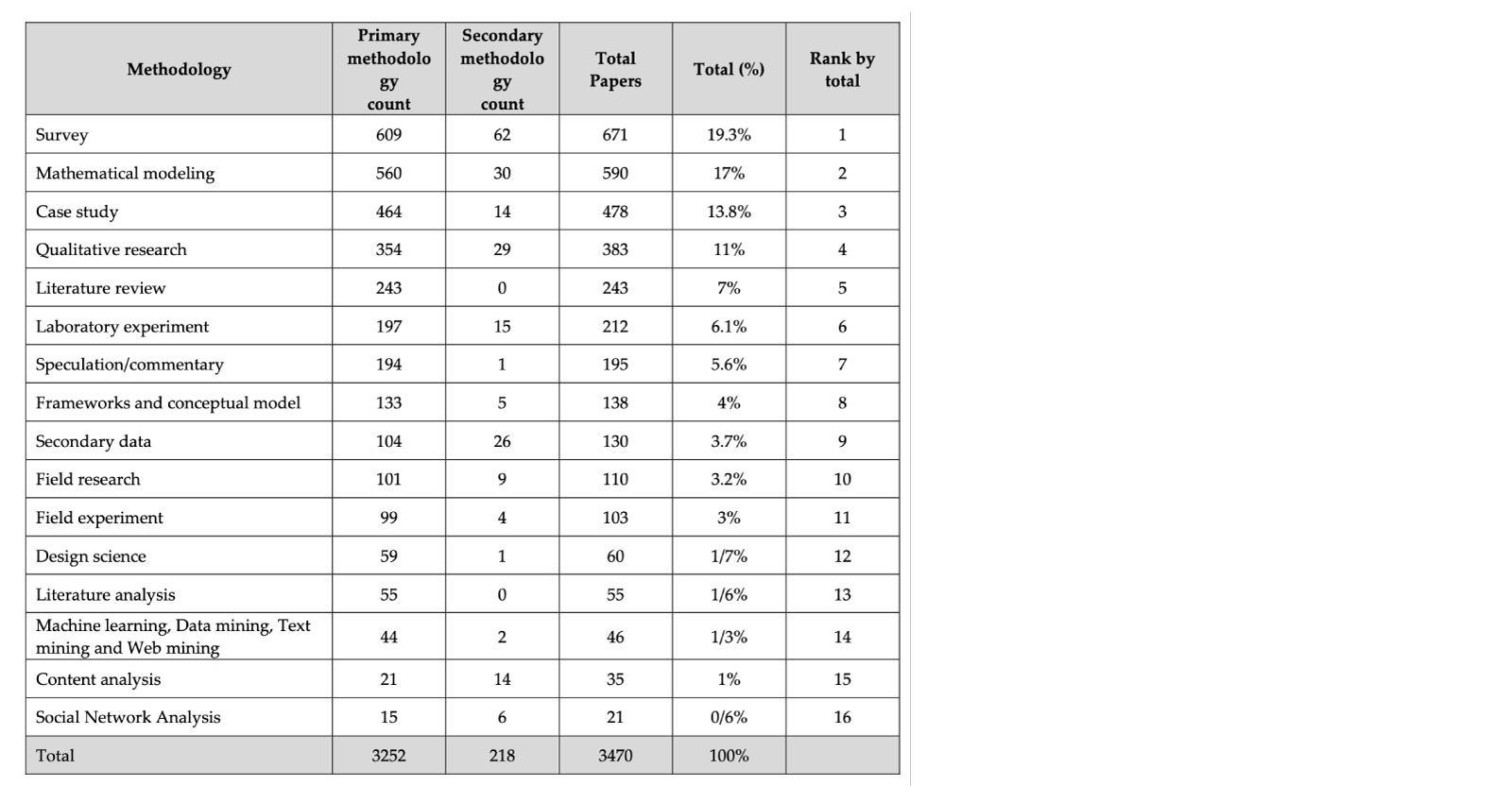Research design
A comprehensive plan for empirical research
Neu-Ulm University of Applied Sciences
Basics
Recap
I’d like to discuss the findings of your homework: the identification and study of a literature review on your topic.
- What theories have been applied to study the phenomenon?
- What methods have been applied to build, test, or expand the theories?
- Why are the methods suitable for achieving the research aim?
Overview
The action plan
A research design is the blueprint for the collection, measurement, and analysis of data that
- typically requires a combination of reasoning skills such as induction, deduction, and abduction;
- and often involves different research strategies such as exploration, rationalization, and validation (Recker, 2021)
Deduction
Drawing a conclusion from a general premise to a specific instance — from theory to data.
Induction
Inferring a general conclusion from a set of specific observations — from data to theory.
Abduction
Making sense of a specific observation by drawing inferences about the best possible explanation — educated guessing.
Combination of strategies
Good research involves strategies for exploration, rationalization, and validation (Recker, 2021).
Research design decisions
The key benchmark against which your research design must be aligned is the problem statement as specified in the research question(s)—the research design must match logically the research question.
| Spectrum | One end of continuum | Other end of continuum | |
|---|---|---|---|
| Aim | Exploratory | vs | Explanatory |
| Method | Qualitative | vs | Quantitative |
| Boundary | Case | vs | Statistical properties 1 |
| Setting | Field | vs | Laboratory |
| Timing | Several cases, one point in time (cross-sectional) | vs | One case over time (longitudinal) |
| Outcome | Descriptive | vs | Causal |
Other considerations
Data, risks, theory, feasibility & instrumentation
The alignment between research question(s) and design does not have to be unidirectional. In fact, most research questions are tweaked and altered over time to reflect an updated research design, although research questions should retain their prominence over the research design (Recker, 2021).
Research methodology
Overview
Strategy used to answer a research question.
Main strategies of inquiry in IS (Recker, 2021):
- Quantitative methods
- Qualitative methods
- Design science methods
- Computational methods
- Mixed methods
Exercise
Speak to your neighbour for 10 minutes and discuss the differences between qualitative and quantitative methods in relation to the following scientific research requirements.
- Controllability
- Repeatability
- Generalizability
Differences
| Requirement | Qualitative | Quantitative | Design science | Computational |
|---|---|---|---|---|
| Controllability | Low | Medium to high | High | Low to medium |
| Deducibility | Low | Medium to high | Low | High |
| Repeatability | Low | Medium to high | High | High |
| Generalisability | Low | Medium to high | Low | Low to medium |
| Explorability | High | Low to medium | Low to medium | High |
| Complexity | High | Low to medium | Medium to high | Medium to high |
Examples
IS research
Focus
Among the most important topics in top journals between 2007 and 2018 were electronic business, IS usage/acceptance, and security and privacy , with the survey method being the predominant research methodology (Mazaheri et al., 2020).
Methods overview

Homework
Research recently published papers in your field and, using the main strategies of inquiry in IS, try to find one paper for each strategy.
Explain relevant points of the different research designs that might help you in your work.
Q&A
References
Footnotes
For instance the required sample size for a survey or experiment.